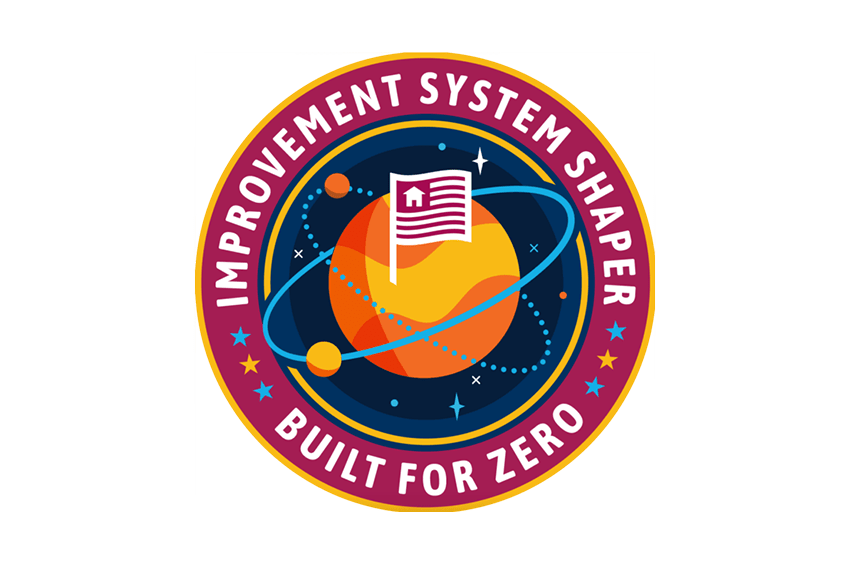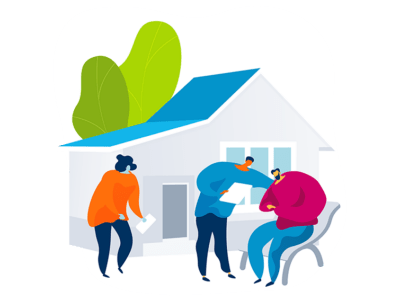Throughout the 2022-2023 Action Cycle, BFZ community teams have been participating in one or more cohorts designed with specific goals and led by expert coaches. Read on to learn more about the work being done in I.S.S.!
What is the Improvement Systems Shaper (I.S.S.) Cohort about?
I.S.S. is a six-month cohort that equips community leaders with foundational skills and methodology to improve local homeless response systems. This is a fundamentals cohort designed to address the needs of communities that are new to Built for Zero, as well as those who have been working with BFZ for less than 2 years.
Coaching support for I.S.S. is provided by Jane Moy, Tori Morris, Tia Lurie, and Garen Nigon.
Communities in I.S.S. are:
- Building cohesive and effective improvement teams that serve as the central command to drive the work forward
- Creating and strengthening data infrastructure to produce accurate, reliable, and credible real-time, system-level metrics
- Beginning to disaggregate system data in a meaningful way to uncover inequities
- Discovering and applying better ways to coordinate across the homeless response system
- Learning to facilitate effective meetings and operate a collaborative team across a variety of stakeholders
- Incorporating people with lived expertise in all levels of decision-making processes
- Testing effective practices using case conferencing or outreach coordination tools
Cohort Launch Date: May 2022
One word that best describes the Improvement Systems Shaper Cohort: Discovery
Meet two of the coaches for the I.S.S. Cohort!
Jane Moy, Data Coaching & Performance Manager

Q. Can you tell us more about your position in Built for Zero?
A: In my role, I focus on coaching communities to get and sustain quality data to use in their improvement work to end homelessness. Before coming to Community Solutions, I served as an HMIS Analyst, worked at a health system to measure performance, spent several years in workforce development doing direct service, and served in AmeriCorps. My experience has taught me to see the potential for harnessing data to drive system-level change, and how getting curious about what the data is telling you is often an important first step.
Q: What are you most excited for this cohort to do?
A: I’m really looking forward to seeing everyone gel with their improvement teams — it’s so essential to making progress. As they settle into learning more about their systems, these communities will begin discovering how all the pieces fit together through the command center model. And they will be able to better map their clients’ journeys across various providers, and bring the right people to the table to create system-level changes as a result.
I’m also excited to see these teams start to understand their systems in a way they may not have had the space or permission to do before. How do they view their system as a whole? What does looking at real-time system-level data together help them uncover? What is the sum of all its parts? How might they align their work better to end homelessness?
Our goal in I.S.S. is to help teams in this cohort discover the “why” behind their data, so they can ultimately make better data-driven decisions.
Tori Morris, Data Coaching & Performance Advisor

Q. Can you tell us more about your position in Built for Zero?
A: My role focuses on clearing the path for communities to generate and sustain quality data and track their progress towards achieving functional zero. I joined Built for Zero from Abt Associates, a national research and technical assistance firm. As a Senior Analyst at Abt, I served as a technical assistance provider and a mixed-methods researcher for large-scale social program evaluations. I also led and worked on homelessness research projects like the Annual Homeless Assessment Report and provided technical assistance to communities planning and conducting their annual Point-in-Time counts.
Q: What are you most excited for this cohort to do?
A: I am excited to see this cohort get creative and innovate about how they can build sustainable systems in their community. An important part of the I.S.S. cohort is that it gives communities space to get curious about their current homeless response system and think about designing for a future where they have ended homelessness.
I’m continuously inspired as I see improvement teams hard at work building more inclusive and comprehensive coalitions and data systems. It’s great to see that work pay off as teams begin to see a more complete picture of homelessness in their community and better understand people’s experiences in the homeless response system, no matter where or how they are showing up.




